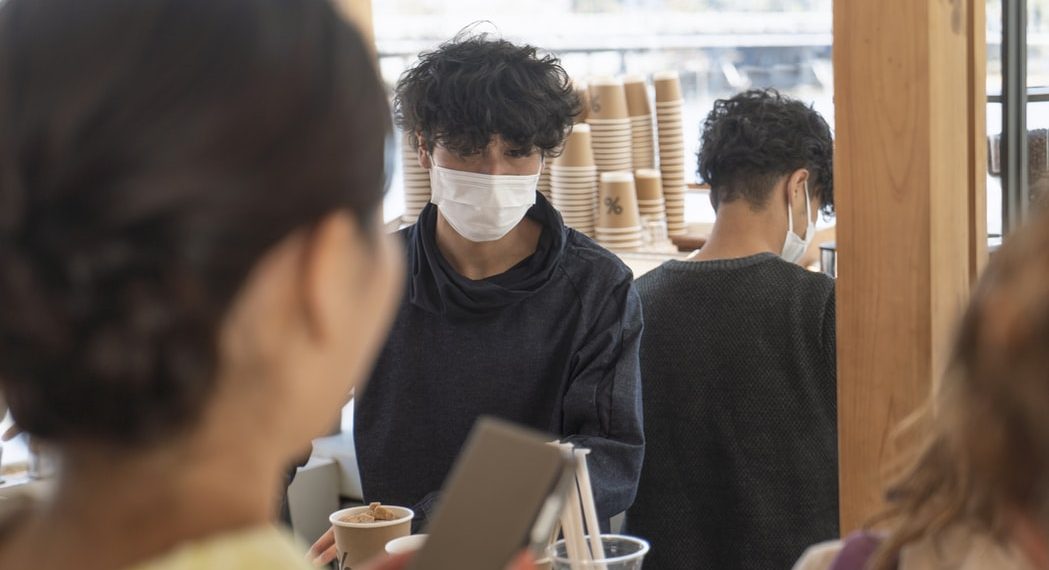New results of the study “Diaries of a Pandemic”, developed by ISPUP and INESC TEC, in partnership with the newspaper PÚBLICO.
Do the Portuguese know the contingency plan in their workplace? What places do they visit more often? And why do they leave home for non-professional reasons? The most recent data of the “Diaries of a Pandemic” show that almost a quarter of people who returned to their workplace mentioned being unaware of the recommendation to stay at home when experiencing symptoms associated with COVID-19. On the other hand, half of the individuals in charge of children chose not to take them back to the educational institutions that reopened in the meantime. Moreover, people aged 60 or over were the ones who left their homes more often to go to terraces or non-essential establishments.
The latest results concern the period of May 25 and June 5, with 4.543 individuals completing the questionnaire on returning to work and resuming social life outside their household.
Knowledge of contingency procedures in the workplace
More than three quarters of respondents – teleworking or working outside their homes – reported the dissemination of a contingency plan for COVID-19 in their workplaces.
However, and concerning containment measures applied in the workplace, 24% of the individuals who returned to their workplaces mentioned being unaware of the recommendation to stay at home when experiencing symptoms associated with COVID-19, or that said recommendation was not in force. Considering the different professional sectors, results show that healthcare workers were the ones who mentioned the inexistence of said recommendation (or that they we not aware of it) more often.
According to Raquel Lucas, researcher of the “Diaries of a Pandemic”, “the results were quite surprising, since one of the fundamental rules for preventing virus transmission is not going to work when feeling sick. However, one can observe that almost a quarter of people who work outside their homes, namely healthcare professionals, were not aware of said recommendation”.
In addition, and still among people working outside their homes, 29% did not know if the surfaces in their workplace were cleaned, or considered that they had not been properly cleaned. Additionally, 18% mentioned not having free access to face masks or not knowing if they would ever have access to them.
The study shows that there is a clear social gradient regarding the knowledge of contingency measures in the workplace: lower-income individuals were the ones who most often mentioned the absence/lack of knowledge of different COVID-19 containment strategies in their workplaces.
Reopening of nurseries, kindergartens and schools
Among the participants who were in charge of children, more than half chose not to take their children back to educational institutions (nurseries, day-care centres, kindergartens and schools).
Moreover, half of the respondents (with or without children) showed great concern about the possibility of increasing the risks among children or other family members, due to the reopening of said institutions. However, individuals with higher education do not seem to be as concerned with this situation as other people are.
Going out and social life
More than three quarters of the participants in the “Diaries of a Pandemic” mentioned leaving home, at least once, to take a walk or to work out. This was the most common reason for leaving home, followed by visits to relatives or friends, going to the beach or parks. The last two reasons are more common among the youngest respondents.
In addition, visits to relatives and friends were more frequent in the Northern region of Portugal, while visits to the beach and parks were more common among the inhabitants of Lisbon’s Metropolitan Area.
Moreover, less than half of the participants went to terraces (40%), non-essential establishments (31%) or indoor spaces at restaurants or coffee shops (28%). Individuals aged 60 or over were the ones who reported leaving their homes more often for said purpose. According to Raquel Lucas, some possible explanations could be, on the one hand, the wrong perception about the risks, combined with the need to leave their homes and socialise, and, on the other hand, the fact that said establishments are closest to their homes, when compared to outdoor leisure spaces, such as the beach.
In addition, 14% of respondents mentioned resorting to face-to-face healthcare services for reasons unrelated to COVID-19, while only 8% used public transportation – most common among younger respondents and the residents of Lisbon’s Metropolitan Area.
People should keep participating!
The researchers of the “Diaries of a Pandemic” have been collecting information since March 23, in order to understand how the Portuguese people act according to a set of situations that may influence the course of the COVID-19 pandemic in Portugal.
In order to keep producing relevant scientific knowledge in this field, we need your collaboration. In this sense, we ask you to keep dedicating 5 to 10 minutes of your time and answer our survey questions – which, starting May 25, are available each week.




 News, current topics, curiosities and so much more about INESC TEC and its community!
News, current topics, curiosities and so much more about INESC TEC and its community!